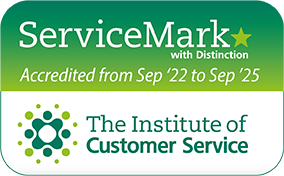Check out our back to basics, easy to understand guide to Cash ISAs.
Social media is a playground for cybercriminals and is increasingly becoming an important communication and research tool.
Last year, a YouGov survey revealed fraudsters only needed three pieces of key information to steal an identity and access a person’s account. These were: name, date of birth and address. A third of British adults include at least one of these three snippets of information in their online profiles and 48% of 18 to 24-year-olds regularly uploading this information to social media compared to 28% of 35 – 44 year-olds.
It doesn’t take much for seasoned fraudsters to fit together the pieces of the puzzle to steal your identity.
So, how can you and your family protect yourself against identity theft online?
Below, we’ve listed five top-tips:
Cut back on oversharing
From holiday snaps, to family celebrations, research conducted by Nationwide revealed 83% of UK adults admitted to regularly oversharing on social media. A huge percentage, this highlights the lack of caution when uploading posts. Think twice before you add anything to your profile. Ask yourself the following question: am I revealing any sensitive information? If you cannot answer ‘no’ with 100% confidence, it’s better to play it safe and not post anything at all.
It is also important to ask loved-ones to post with care, as 56% of those surveyed admitted their friends often share their location on their social media posts. The popularity of geotagging (the act of adding geographical identification metadata to various mediums such as video, social media posts, photographs, etc.) is booming. Instagram, for example, currently allows its users to tag images. If your profile is open to the public and not set to private, your location is visible to everyone who can accurately pinpoint your location. Whether this is the town you live in or the Spanish resort you are visiting, fraudsters can use this information to paint a picture of your identity.
Keep track of your connections
It might be flattering, but accepting friend requests from strangers may inadvertently open you up to fraud. Criminals typically create fake accounts– set-up to look legitimate – to connect with a large number of people to gain access to their personal information. For example, your full name, date of birth, location, previous school, place of work and spouse can be easily determined by the click of a mouse. Only allow people you know and trust access your social media profiles, and make sure your privacy settings are on high at all times.
Keep your smartphone apps updated
Frequent digital application updates on your smartphone, table and PCs may be annoying, but they play an important part in patching up critical security holes in out-of-date software which, if left unattended, increases your risk of being targeted by opportunities fraudsters and viruses. Many devices have an automatic update setting, therefore, ensure yours is enabled and when a notification alert prompts you to download an app update, don’t ignore it.
Beware of phishing emails
Social media is a hot bed for phishing scams if you click on links that haven’t been verified. It is not uncommon to receive an email from Twitter or Facebook asking you to confirm your identity. Before clicking on any embedded hyperlinks, make sure the email address it was sent from is legitimate by moving your cursor over the link to check if the URL is correct. Keep an eye out for grammatical errors and spelling mistakes as this is also a good indicator that not all is what it seems.
Be mindful
Cifas, the UK’s leading fraud prevention service, and digital experts, Forensic Pathways, recently reported nearly a third of fraud victims allow their personal information to be freely accessible on the internet and suggested attitudes towards internet security have become “cavalier” amongst many UK adults. It is important to be mindful of what you post on social media and remember every upload leaves a digital footprint. Even if you delete it immediately, hackers can still easily extract it.
Are you about to move into a new property? If so, read ‘How to keep your personal information safe when moving home’ for tips on how to protect yourself against ‘previous occupier’ fraud.
For further advice about how to protect you and your family against identity theft in general, visit our fraud and online security hub.






